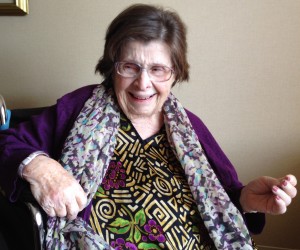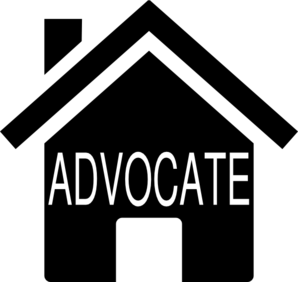
Mean Mom, Nice Mom and Dementia

My Mom
My theory of 10 years is now officially broken. I believed that if you had a mean parent they turned nice with dementia and if you had a nice parent they would turn mean with dementia. My random sample was everyone that I have ever spoken to about this theory.
Well, the tables have turned and my mom has turned mean again. Years ago, the ugly side of my mom was only exposed behind closed doors. The mental abuse for years took a tool on all my siblings and I. In fact, when they each turned 18, all of them moved to other states. I stayed to protect my dad. I figured if she took half her wrath out on me, he would only be subjected to it 50 percent of the time.
In college, psychology classes opened my eyes to mental illness and depression. After my mean mom did not attend my graduation or marriage, I was done. A wonderful counselor taught me how to deal with it. When I spoke to my mom and she was mean, I would say, “I am sorry that this conversation is not going the way I hoped, I have to go now, bye.” After I did this three times, my mom’s treatment of me turned around. She has treated me well for 28 years.
Now, she is in the late stages of vascular dementia. I got a call two days ago saying she is yelling and swearing at the staff. Oh boy, my nice mom is gone. Say hello, to sundowners syndrome and her living in the past of about 30 years ago. Yesterday, I went to spend some quality time with her. The mean look was on her face. My mom harshly said, “Where have you been? You have a lot of gaul showing up now. Why haven’t you come to see me? Everyone is stealing all my things. The neighbors are selling off all my clothes. You are just showing me defiance. I am hungry, no one has fed me in days.” Then she pointed to one of the staff and said, “See, she is crying.” (No staff was crying.)
Little Diane, felt she was back in high school again. I kept my head and tried to talk her off the ledge (so to speak). She just continued ranting and repeating what she already had said. She was visible agitated. I handed her the banana I had brought and she relaxed by 50%. Every time she repeated that she was hungry, I invited her to eat the banana. She said, “I am not hungry, I will save it for later.” My husband and I continued to talk to her in a calm and reassuring way and an invisible sundowners switch finally turned her back to my nice mom.
About a half hour later, I explained to her that she had memory loss. I explained how I was helping her by having a doctor (podiatrist) trim her toenails this week and she screamed, “Don’t touch me, don’t cut my nails” at the top of her lungs. She said, “I did? Well one doctor hurt me a long time ago.” I told her about another doctor who came to do an eye exam and now she has new glasses and can read again. When she said that she could not understand the staff, I said, “Yes, your hearing is bad and we have an audiologist scheduled to come in and maybe get you a hearing aid.” She loved the explanations, enjoyed me being there, holding her hand and feeling calmness.
Eventually, I said, “Mother I heard that you were yelling and swearing at the staff this week.” She said, “I did? I can’t remember. I didn’t mean to.” Then I said, “When I came in today, you were mean to me and yelled at me.” My mom said, “I am sorry, I didn’t mean to, I don’t remember.” Well, all was forgiven and I was so glad that I did not walk out earlier that day by reliving the harsh criticism and mental abuse of the past.
If your parent has turned mean, just remember it is the monster disease of dementia, sundowners syndrome or Alzheimer’s. (I know it’s easier said that done.) As my mom sundowners continues to progress, I may have to hold onto this apology forever. She may not have the brain cells left in vascular dementia to be cognitive enough to apologize.
Her psychiatrist says the sundowners has progressed to the point of needing medications to help her. I am very protective of my mom and don’t want to over medicate her, but my mom has been in her own daily mental torture for about three weeks. My goal is to keep her comfortable and pain free. If the medications can give her peace, I am now all for them.
Please share your successes, failures or comment below to join the conversation and interact with other senior living professionals on what is currently being effective to increase occupancy on a nationwide basis.
Diane Twohy Masson is the author of “Senior Housing Marketing – How to Increase Your Occupancy and Stay Full,” available at Amazon.com with a 5-star rating. The book is required reading at George Mason University as a part of its marketing curriculum. Within this book, the author developed a sales & marketing method with 12 keys to help senior living providers increase their occupancy. Masson developed this expertise as a marketing consultant, sought-after blogger for senior housing and a regional marketing director of continuing care retirement communities in several markets. She has also been a corporate director of sales and a mystery shopper for independent living, assisted living, memory care and skilled care nursing communities in multiple states. Most recently Masson was recruited to consult for two debt-free Continuing Care Retirement Communities in Southern California – Freedom Village in Lake Forest and The Village in Hemet, California. Interestingly, this career started when she was looking for a place for her own mom and helped her loved one transition through three levels of care.

